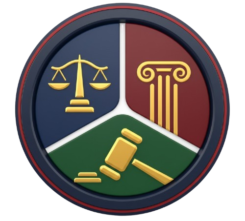- +92 333 1127830
- info@qanoonhouse.com
- Qanoon House, T-219, Supreme Corner, Jauhar Chowrangi, Block 17, Gulistan-e-Jauhar, Karachi, Pakistan
Old Age Parents Maintenance in Pakistan
UPHOLDING FILIAL RESPONSIBILITY AND CARE
Old-age parents’ maintenance holds immense significance in Pakistani society as it recognizes the rights and well-being of aging parents. The legal framework in Pakistan acknowledges the duty of children to provide financial and emotional support to their elderly parents. The concept of old-age parents’ maintenance in Pakistan, explores the legal provisions, societal norms, and the importance of upholding filial responsibility to ensure the welfare of aging parents
FILIAL RESPONSIBILITY
Filial responsibility refers to the moral and legal duty of children to support and care for their aging parents. This principle is deeply rooted in Pakistani culture, which emphasizes respect, honor, and care for parents throughout their lives.
LEGAL FRAMEWORK
While there is no specific legislation on old-age parents’ maintenance in Pakistan, the country’s legal system recognizes the importance of filial responsibility. The principles of Islamic law, family law, and the Constitution indirectly uphold the duty of children to provide for their elderly parents.
FINANCIAL SUPPORT
Children are expected to provide financial support to their aging parents when they are unable to sustain themselves. This support may include providing for their daily needs, and medical expenses, and ensuring they have a safe and comfortable living environment.

SOCIAL AND EMOTIONAL CARE
Beyond financial assistance, children have a responsibility to provide social and emotional care to their aging parents. This involves spending quality time with them, ensuring their emotional well-being, and addressing their social needs.
VOLUNTARY MAINTENANCE AGREEMENTS
In some cases, children and parents may enter into voluntary maintenance agreements that outline the financial support and care to be provided. While these agreements are not legally binding, they reflect a commitment to fulfilling the obligation of old-age parents’ maintenance.
CULTURAL NORMS AND EXPECTATIONS
Pakistani society places great emphasis on respecting and caring for elderly parents. It is seen as a moral and cultural obligation for children to support their parents in their old age, and failure to do so may be regarded as a breach of societal norms.
ROLE OF ELDERS’ WELFARE ORGANIZATIONS
Various welfare organizations in Pakistan work towards the welfare and support of elderly individuals. These organizations provide assistance, advocacy, and resources to help ensure the well-being of aging parents.

Legal Services
Our Attorney

Popular Service
Provincial Tax Authorities
Misc. Services
Recent Article
GOVERNMENT INITIATIVES
The Pakistani government has initiated programs to address the needs of elderly citizens, including healthcare facilities, social welfare programs, and financial support schemes. However, these initiatives are still in the early stages and require further development and implementation.
RAISING AWARENESS
Raising awareness about the importance of old age parents’ maintenance is crucial. Educational campaigns, media initiatives, and community programs can help instill a sense of responsibility among the younger generation and promote a culture of caring for aging parents.
STRENGTHENING LEGAL PROTECTION
Considering the changing dynamics of society and the increasing number of elderly individuals, there is a need to strengthen legal protections for old-age parents’ maintenance. Developing specific legislation and legal mechanisms to ensure the financial and emotional well-being of aging parents would provide a more robust framework for addressing the needs of elderly parents.


OLD AGE PARENTS IN ISLAM: THE IMPORTANCE OF RESPECT AND CARE
Islam places immense emphasis on the rights and welfare of parents, especially in their old age. The religion teaches its followers to honor and care for their elderly parents, recognizing their wisdom, experience, and the need for support in their later years. This article explores the significance of old-age parents in Islam, highlighting the teachings and principles that guide Muslims in respecting and caring for their aging parents.
ISLAMIC TEACHINGS ON PARENTAL RIGHTS
Islam considers respecting and honoring parents as one of the fundamental obligations of a Muslim. The Quran and the teachings of Prophet Muhammad (peace be upon him) emphasize the importance of treating parents with kindness, gratitude, and dutifulness.
OBLIGATIONS TOWARDS AGING PARENTS
Muslims are obliged to provide financial, emotional, and physical support to their aging parents. This includes meeting their basic needs, ensuring their comfort and well-being, spending quality time with them, and addressing their emotional and social needs.
THE REWARD OF CARING FOR AGING PARENTS
Islam teaches that the reward for caring for aging parents is significant. It is believed that fulfilling this duty leads to spiritual blessings, forgiveness of sins, and a higher rank in the sight of Allah.
PATIENCE AND KINDNESS
Islam emphasizes the virtues of patience and kindness when dealing with aging parents. Muslims are encouraged to exhibit patience in the face of challenges that may arise due to their parents’ old age and to treat them with kindness, compassion, and respect.
THE ROLE OF ADULT CHILDREN
In Islam, adult children are expected to assume responsibility for their aging parents. This includes providing financial support, assisting with daily tasks, ensuring access to healthcare, and creating a loving and supportive environment for them.
HOME CARE AND RESPECTFUL TREATMENT
Islam encourages children to keep their parents in their own homes whenever possible, allowing them to age with dignity and respect. This provides an opportunity for children to fulfill their responsibilities directly and maintain close bonds with their parents.
SEEKING ALLAH’S PLEASURE
Caring for aging parents in Islam is not just a cultural obligation but a means of seeking Allah’s pleasure. Muslims believe that by fulfilling their duty towards their parents, they earn the love and blessings of Allah.
COMMUNITY SUPPORT AND RESOURCES
Islamic communities often provide support systems and resources for elderly parents. These include organizing social gatherings, creating networks of care, and establishing institutions that cater to the needs of elderly Muslims.
THE LEGACY OF LOVE AND RESPECT
Caring for aging parents in Islam goes beyond fulfilling a religious obligation. It is a testament to the love, gratitude, and respect that children have for their parents, creating a legacy of love and nurturing bonds that span generations.


OLD AGE PARENT’S MAINTENANCE LEGISLATION
In Pakistan, there is currently no specific legislation solely dedicated to old-age parents. However, several laws and provisions indirectly address the rights and well-being of elderly individuals. These legal frameworks aim to ensure the protection, care, and support of aging parents. Here are some key aspects of legislation related to old age parents in Pakistan:
CONSTITUTION OF PAKISTAN
The Constitution of Pakistan guarantees fundamental rights to all citizens, including the right to dignity, protection, and security. These rights extend to elderly individuals, emphasizing the importance of providing them with a safe and respectful environment.
MAINTENANCE AND WELFARE OF PARENTS AND SENIOR CITIZENS ACT 2018
This act was introduced to address the needs of senior citizens, including old-age parents. It seeks to provide for their maintenance, welfare, and protection. The act emphasizes the duty of children to maintain their parents and sets out procedures for the enforcement of maintenance orders.
SOCIAL WELFARE PROGRAMS
The Pakistani government has initiated various social welfare programs that indirectly benefit elderly individuals. These programs include healthcare facilities, pension schemes, and financial assistance for the elderly. These initiatives aim to support aging parents and ensure their well-being.
FAMILY LAWS
Family laws in Pakistan, such as the Muslim Family Laws Ordinance, of 1961, and the Guardians and Wards Act, of 1890, consider the welfare of elderly parents in matters related to guardianship, custody, and inheritance rights. These laws provide a framework for resolving disputes and ensuring the rights of elderly parents are protected.
ELDER ABUSE LEGISLATION
Pakistan has taken steps to address the issue of elder abuse through legislation such as the Punjab Protection of Women Against Violence Act, 2016. Although these laws primarily focus on gender-based violence, they can be applicable in cases of elder abuse, providing protection and legal remedies.
PROPERTY LAWS
Property laws in Pakistan safeguard the rights of elderly parents in terms of inheritance and property ownership. These laws ensure that elderly parents have a legal claim to their property and protect them from undue exploitation or dispossession.
VOLUNTARY ORGANIZATIONS AND NGOS
Various voluntary organizations and non-governmental organizations (NGOs) in Pakistan work towards the welfare and support of elderly individuals, including old age parents. These organizations provide assistance, advocacy, and resources to improve the quality of life for aging parents.


QURAN EMPHASIZE ON OLD AGE PARENTS MAINTENANCE
The Holy Quran contains several verses that emphasize the importance of caring for and maintaining the well-being of elderly parents. Here are some verses that highlight this concept:
Surah Al-Isra (17:23): “And your Lord has decreed that you not worship except Him, and to parents, good treatment. Whether one or both of them reach old age [while] with you, say not to them [so much as], ‘uff’ nor repel them but speak to them a noble word.”
This verse emphasizes the duty of treating parents with kindness and respect, especially in their old age. It prohibits any form of harshness or disrespect towards parents and emphasizes the importance of speaking to them with gentle and honorable words.
Surah Al-Ahqaf (46:15): “And We have enjoined upon man, to his parents, good treatment. His mother carried him with hardship and gave birth to him with hardship, and his gestation and weaning [period] is thirty months. [He grows] until, when he reaches maturity and reaches [the age of] forty years, he says, ‘My Lord, enable me to be grateful for Your favor which You have bestowed upon me and upon my parents and to work righteousness of which You will approve and make righteous for me my offspring. Indeed, I have repented to You, and indeed, I am of the Muslims.'”
This verse highlights the gratitude and appreciation one should have towards parents, particularly mothers who undergo hardships in raising their children. It also emphasizes the responsibility of offspring to be grateful to their parents, to seek forgiveness for any wrongdoings, and to work towards righteousness and the well-being of their own children.
Surah Al-Baqarah (2:215): “They ask you, [O Muhammad], what they should spend. Say, ‘Whatever you spend of good is [to be] for parents and relatives and orphans and the needy and the traveler. And whatever you do of good – indeed, Allah is Knowing of it.'”
This verse encourages believers to spend in the way of Allah, including spending for the benefit of parents. It highlights the importance of providing support and assistance to elderly parents, along with other categories of individuals in need.
ENFORCEMENT MECHNISIM
Enforcing old age parents maintenance laws in Pakistan involves several steps and procedures. Here are some key points to consider:
AWARENESS AND EDUCATION
Creating awareness about the existence and importance of old age parents maintenance laws is crucial. This can be done through public campaigns, educational programs, and community initiatives to inform both elderly parents and their adult children about their rights and obligations
LEGAL REPRESENTATION
Elderly parents who are seeking maintenance can seek legal representation from a qualified lawyer who specializes in family law. A lawyer can guide them through the legal process, help prepare necessary documents, and represent their interests in court if required.
FILING A MAINTENANCE PETITION
To enforce old age parents maintenance laws, a maintenance petition needs to be filed in the relevant family court. The petition should include details about the financial situation of the parent, the need for maintenance, and any supporting documents or evidence.
COURT PROCEEDINGS
The family court will review the maintenance petition and schedule hearings to consider the case. Both parties will have the opportunity to present their arguments and evidence. The court will assess the financial capacity of the adult children and determine a fair maintenance amount based on the needs of the elderly parent.
MAINTENANCE ORDER
If the court is satisfied with the evidence and arguments presented, it will issue a maintenance order specifying the amount to be paid, the frequency of payments, and any other relevant conditions.
ENFORCEMENT MECHANISMS
In case of non-compliance with the maintenance order, various enforcement mechanisms can be pursued. This may include seeking the court’s intervention to enforce the order, such as attaching the property or assets of the adult child or garnishing their wages to ensure timely payment.
COMMUNITY SUPPORT AND INTERVENTION
Communities and organizations can play a significant role in enforcing old-age parents’ maintenance laws. They can provide emotional support, counseling, and advocacy for elderly parents, as well as facilitate dialogue and mediation between the parties involved.
